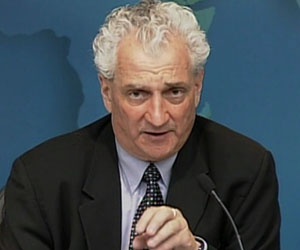- Home - News
- TWI News | TV
- Polls
- Year In Review
- News Archive
- Crime & Punishment
- Politics
- Regional
- Editorial
- Health
- Ghanaians Abroad
- Tabloid
- Africa
- Religion
- Election 2020
- Coronavirus
- News Videos | TV
- Photo Archives
- News Headlines
- Press Release
Business News of Friday, 3 January 2014
Source: Daily Guide
'Stop lending to poor resource rich countries'
Daniel Kaufmann, President of Revenue Watch Institute, has called on the World Bank and the International Monetary Fund (IMF) to halt their lending to poor countries that are rich in natural resources but fail to disclose how they use those revenues.
Kaufmann said that 20 percent of the world’s poor survive on less than $2 a day in countries rich in natural resources.
“With vast new reserves of oil and gas discovered in the region, its poverty level is poised to increase to 50 percent of the world’s poor by 2030, unless there are major improvements in corruption and governance,” he said, adding that the World Bank should be audacious.
Kaufman, a former World Bank Institute official, now heads a research group that promotes accountability over management of natural resource revenues to help countries realise their development benefits.
Nigeria, for example, said last week it cannot account for $50 billion in revenue from the sale of crude oil between January 2012 and July 2013 – an amount that exceeds the total annual foreign development aid to the region.
In Angola, the IMF has estimated that $32 billion in oil revenues went missing between 2007 and 2010, equivalent to one quarter of its GDP, he said.
“At what point does one bite the bullet and say this is absolutely crucial in getting development on the ground. The World Bank, with its unique resources, along with the IMF, should have the audacity to say, “No, we are not lending when there is complete opacity on these issues,” Kaufmann said.
He made the remarks while presenting a detailed framework for addressing corruption and improving governance in resource-rich countries at a World Bank seminar recently.
“What we are talking about is $350 to $400 billion in domestic resource mobilization just from oil (revenues), and leveraging that and approaching it from the development standpoint would totally dwarf whether a dollar (in World Bank lending) went to its proper destination,” he said.











